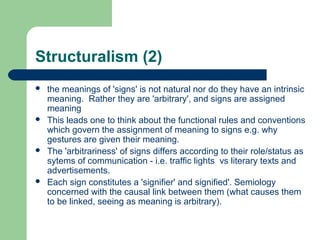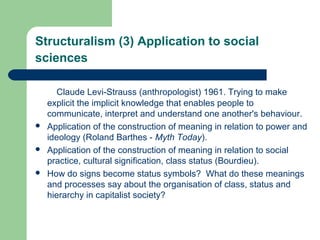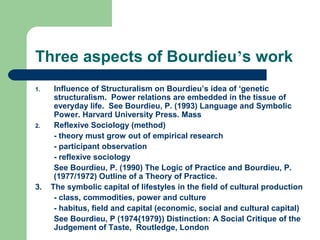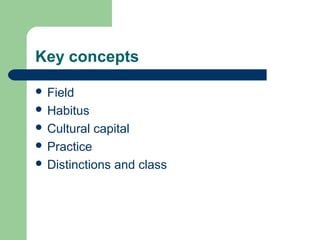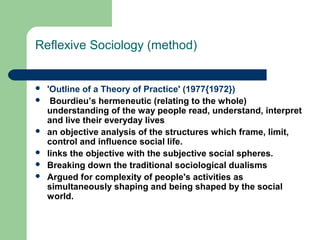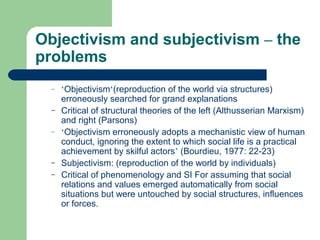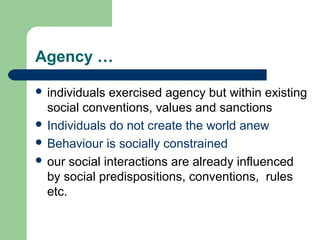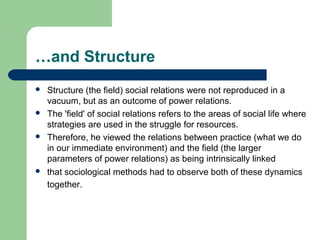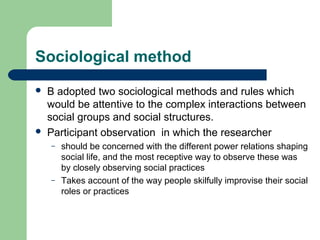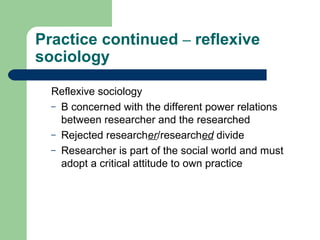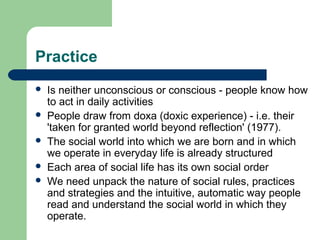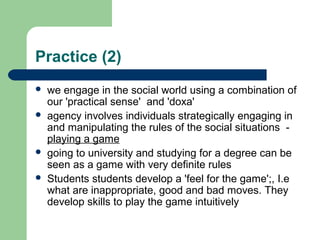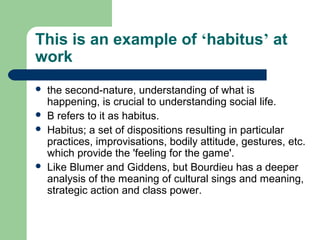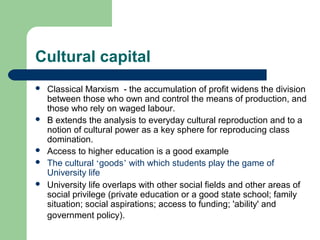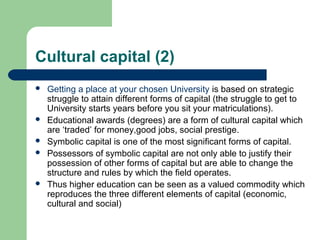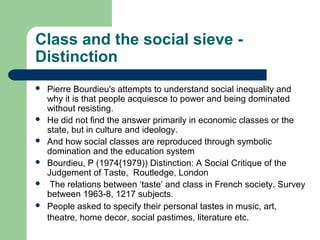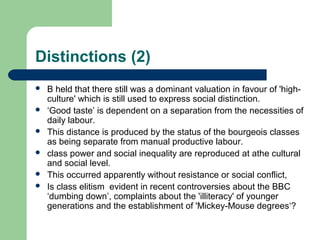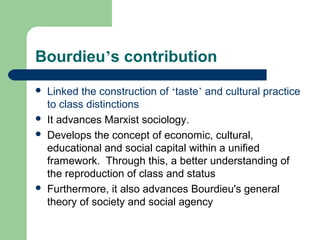The document discusses Pierre Bourdieu's contributions to sociology, particularly his concepts of genetic structuralism, reflexive sociology, and cultural capital. It emphasizes the role of arbitrary signs in language and social meaning, the interactions between individual agency and social structures, and how cultural capital affects class distinctions and social inequality. Bourdieu's work critiques traditional sociological dualisms and explores the complexity of social practices and the reproduction of class power through cultural and educational systems.
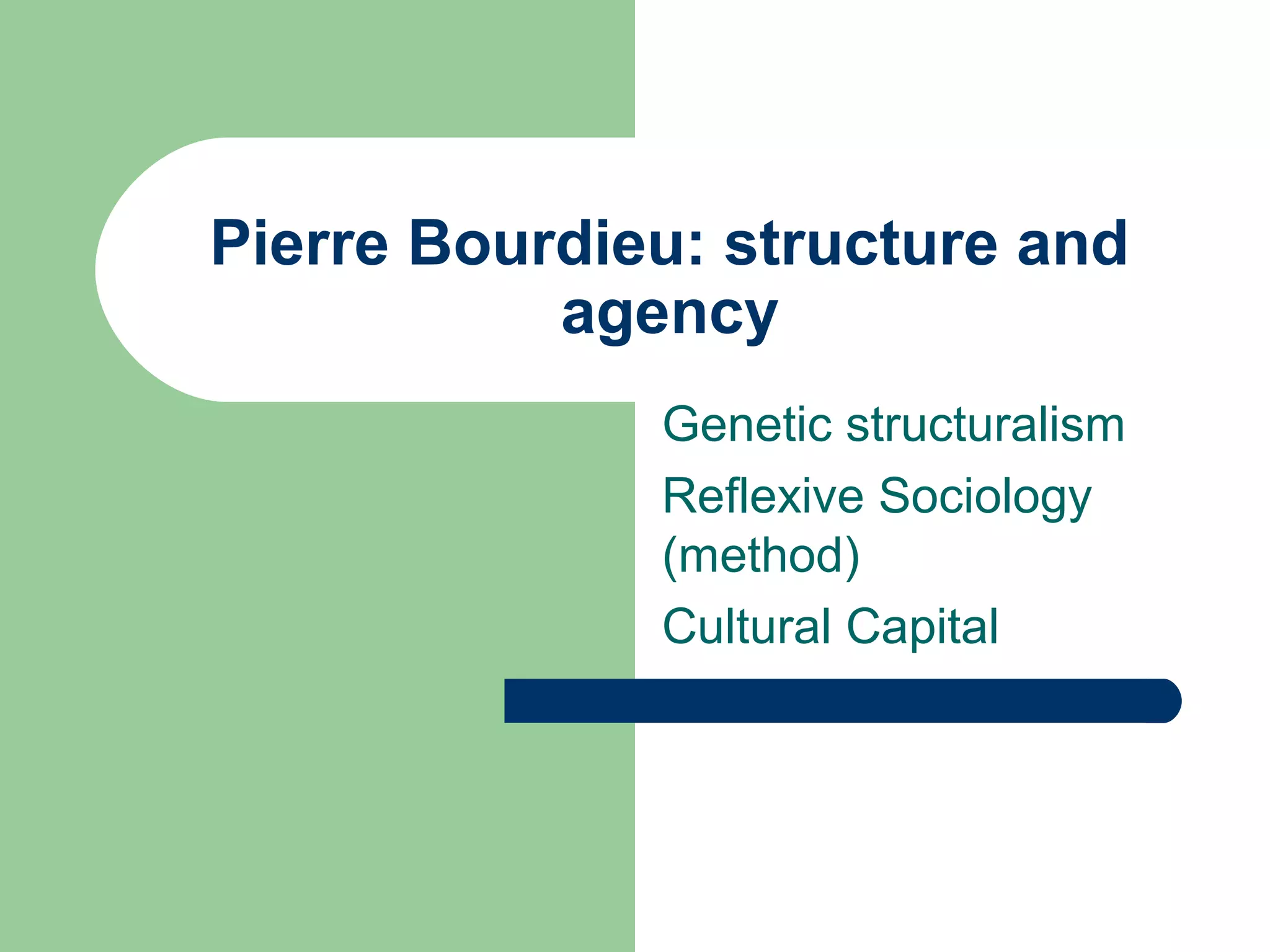
![[Linguistic] Structuralism
(revisiting lecture 1)
Concerned with the underlying structure of meaning in language
(and human thought)
Ferdinand de Saussure (1924) 'Course in General Linguistics'
"language is above all a system of signs and therefore we must
have recourse to the science of signs if we are to define it
properly'?
Semiology (Gr. Semeion - signs) - the science of systems of
signs
’Signs’ includes noises, gestures, conventions, practices, belief
systems, images, 'symbolic rituals, etiquette, military signals' etc.](https://image.slidesharecdn.com/bourdieulectureone-120813010721-phpapp01/85/Bourdieu-Pierre-Structure-and-Agency-2-320.jpg)
